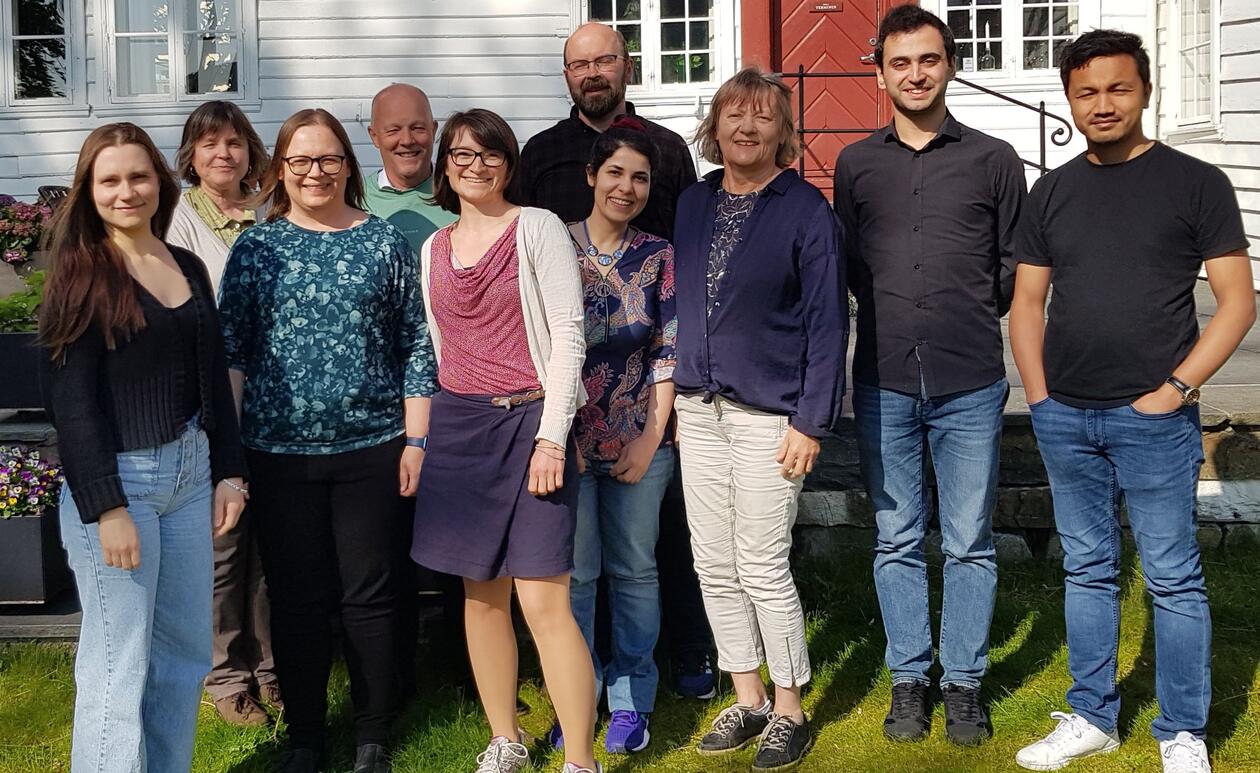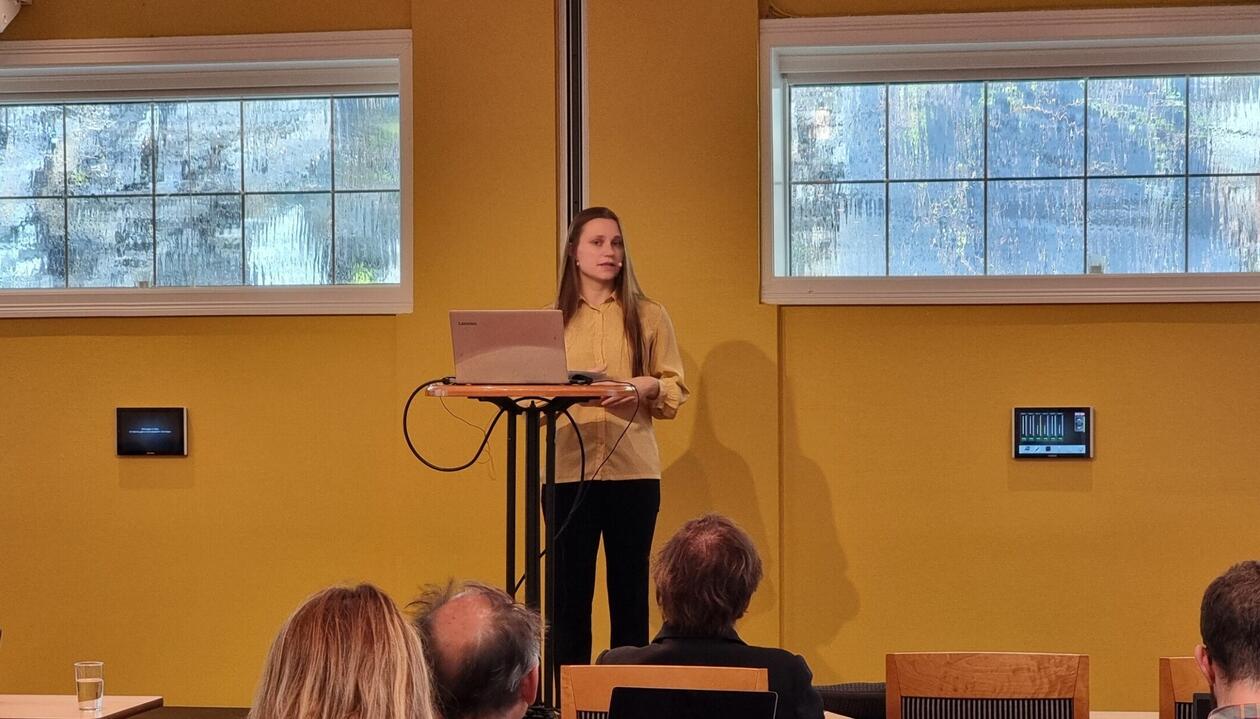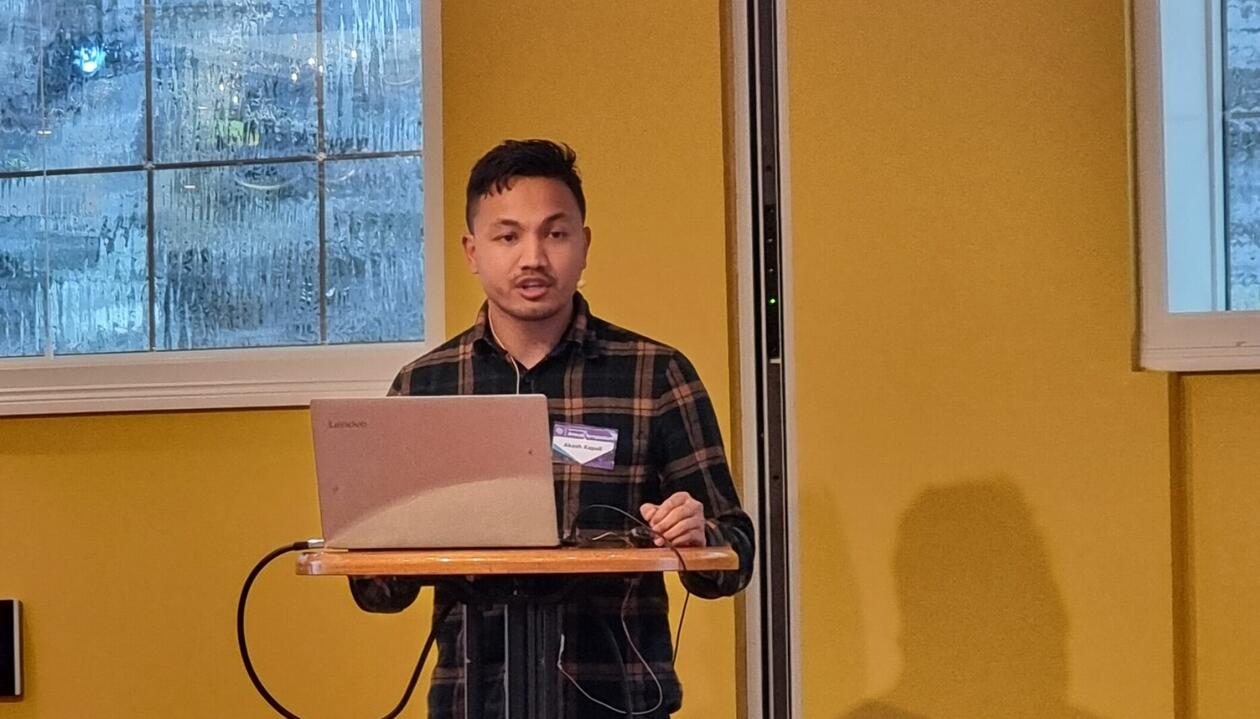DRONE - Drug Repurposing fOr Neurological disEases
The project aims to develop new and effective treatments for the neurological diseases Parkinson's disease (PD), multiple sclerosis (MS), amyotrophic lateral sclerosis (ALS) and Alzheimer's disease (AD).

Main content
The researchers will analyze data from the Norwegian health registries, including the Prescription Register and Patient Register, using an innovative drug repurposing approach based on the history of prescriptions for the entire Norwegian population during last 16 years. The newly developed methodology will help identify drug candidates for new treatment for the diseases. These candidates will be then validated in experimental studies (both in vitro and in vivo) in collaboration with the excellent researchers at Harvard University in Boston, USA
Apart from securing its own funding via Michael J. Fox foundation and NRC (The Research Council of Norway), DRONE is also part of the initiative on the treatment of neurological disease, NeuroSysMed (Norway's first research center for clinical treatment in neurology) at Haukeland University Hospital / UiB.
News
- Professor Alberto Ascherio will be awarded honorary doctorate at a ceremony to be held in the University Aula on May 24th🎉 His collaboration with the University of Bergen began many years ago when Ascherio was introduced to Professor Trond Riise, and the two began exploring the causes of MS. Connection to Bergen has strengthened over time, largely thanks to Kjetil Bjørnevik and Marianna Cortese
- Dagbladet (Norwegian newspaper) has interviewed Julia Romanowska: "Study: Linking Parkinson's to drug use."
- New article with Julia Romanowska first author i Neurology: Association Between Use of Any of the Drugs Prescribed in Norway and the Subsequent Risk of Parkinson Disease: A Drug-wide Association Study
- NEW article from PhD Candidate Akash Kapali: Childbirth delivery mode and the risk of multiple sclerosis: a prospective population-based study
- Master's student Muhammad Eid passed his master's exam on June 14! DRONE congratulates Muhammad!
- NEW article from PhD Candidate Julia Axiina Tuominen: Beta2-adrenoreceptor agonists and long-term risk of Parkinson's disease
- DRONE group had a one-day long seminar at Augustin Hotel 17th November 2022
- DRONE welcome Muhammad Eid, MSc Global Health student at The University of Bergen!
- Asieh Abolpour Mofrad will defend her dissertation on 15.11.2021 for the PhD degree at the University of Bergen with the dissertation "Clique-Based Neural Associative Memories".
- September 16th 2021 14:00-14:45: Trial lecture - PhD Asieh Abolpour Mofrad
- August 2021: Asieh Abolpour Mofrad has started in DRONE - welcome!
- April 2021: Hopefully a DRONE seminar will be arranged at Solstrand 26-27 May!
- March 2021: We are looking forward to Asieh Abolpour Mofrad starting with us in August as a postdoctoral fellow!
- Sept. 2020: Welcome to two new PhD students, Julia Tuominen and Akash Kapali!
- Sept. 2020: We have received extra funding from ALS patients’ association (Alltid Litt Sterkere)! This will help us dedicate a full PhD-position to research on this disease.
Presentations
Julia Romanowska presented "EXPLORING DRUG REPURPOSING APPROACHES FOR PARKINSON’S DISEASE" at TRACE - opening seminar 19th February 2024.
Trond Riise presented at a conference in Italy 16th November 2023: "Use of Artificial Intelligence on registry data to screen for repurposing drugs in neurodegenerative diseases" Conference webpage (italian): https://snoitalia.org/xvii-convegno-nazionale-di-neuroepidemiologia-ainep-artificial-intelligence-neurologia-e-nuova-era-epidemiologica/
Julia Romanowska presented "Drug-wide study associates 31 drug classes with the risk of Parkinson's disease" at "The 29th Norwegian Epidemiological Association (NOFE) conference in Trondheim (15th to 16th November 2023)"
Akash Kapali presented MoBa findings at MSMilan2023 - world’s largest research meeting in multiple sclerosis held 11-13 October at Allianz MiCo in Milan. "Dietary vitamin D and the risk of multiple sclerosis in the Norwegian Mother and Child cohort" (oral presentation)
Multiple Sclerosis Journal. 2023;29(3_suppl):4-136. doi:10.1177/13524585231196191Neuro-SysMed Annual Symposium 2023, September 25-26, 2023 Solstrand, Norway:
Julia Axiina Tuominen presented with the title: «Medication use after diagnosis and Parkinson’s disease survival: A target trial approach”. See Dagens medisin
Akash Kapali presented with the title: “Dietary vitamin D and the risk of multiple sclerosis in the Norwegian Mother, Father and Child cohort” See Dagens medisin.Muhammad gave two presentations about his master project at the German Center for Neurodegenerative Diseases (DZNE) and at the FEST Seminar.
Trond was presenting DRONE at Datathon (https://www.eitrilab.no/datathon2022) and will be presenting at https://www.uib.no/ai/157424/uib-ai-4-examples-medical-ai
Akash was attending ECTRIMS (26-28 Oct., https://2022.ectrims-congress.eu/)
Muhammad and Jannicke were attending NOFE (http://nofe.no/nofe-conference-2022/)
- Julia T.: 2022 ANNUAL MEETING – THE GREAT NEURO REUNION Seattle this April 2-7 (S12 - NEUROEPIDEMIOLOGY 02:48 PM - 03:00 PM PDT Abstract 010 - Selective ß2-Adrenoreceptor Agonists and Long-Term Parkinson’s Disease Risk Julia Axiina Tuominen, MPsych)
- Julia T.: Poster: "Definition and Incidence of Parkinson’s Disease Based on Nationwide Prescription- and Diagnostic Data" at XXV World Congress of Neurology (3-7. October 2021)
- Trond: Abstract "A reverse translational research project for identifying new treatments for Parkinson’s disease: The Italian/Norwegian drug-screening project" at XVI Convegno Nazionale di Neuroepidemiologia 2021 (24. Sept 2021)
- Julia R.: R-Medicine Diving into Registry Data: Using R for Large Norwegian Health Registries (https://r-medicine.org/schedule/) (Thursday, August 26th 2021)
- Julia R.: Bioinformatics in Bergen (18-19. Aug. 2021)
- Julia R.: CEDAS Diving into registry data (https://cedasconf.w.uib.no/accepted-posters/) (1-2. June 2021)
Publications
Childbirth delivery mode and the risk of multiple sclerosis: a prospective population-based study. Kapali A, Daltveit AK, Myhr KM, Bjornevik K, Baldin E, Pugliatti M, Riise T, Cortese M.J Neurol Neurosurg Psychiatry. 2023 Dec 14;95(1):8-13.
Association Between Use of Any of the Drugs Prescribed in Norway and the Subsequent Risk of Parkinson Disease: A Drug-wide Association Study. Romanowska J, Bjornevik K, Cortese M, Tuominen JA, Solheim M, Abolpour Mofrad A, Igland J, Scherzer CR, Riise T.Neurology. 2023 Nov 21;101(21):e2068-e2077.
Beta2-adrenoreceptor agonists and long-term risk of Parkinson's disease. Tuominen JA, Bjørnevik K, Romanowska J, Solheim MH, Grydeland TB, Cortese M, Scherzer CR, Riise T, Igland J.Parkinsonism Relat Disord. 2023 May;110:105389.
Abuse and revictimization in adulthood in multiple sclerosis: a cross-sectional study during pregnancy. Eid K, Torkildsen Ø, Aarseth J, Celius EG, Cortese M, Holmøy T, Kapali A, Myhr KM, Torkildsen CF, Wergeland S, Gilhus NE, Bjørk MH.J Neurol. 2022 Nov;269(11):5901-5909.
About
Amyotrophic lateral sclerosis (ALS)
is a group of rare neurological diseases that mainly involve the nerve cells (neurons) responsible for controlling voluntary muscle movement. Voluntary muscles produce movements like chewing, walking, and talking. The disease is progressive, meaning the symptoms get worse over time. Currently, there is no cure for ALS and no effective treatment to halt, or reverse, the progression of the disease.
Parkinson's disease
is a brain disorder that leads to shaking, stiffness, and difficulty with walking, balance, and coordination. Parkinson's symptoms usually begin gradually and get worse over time. As the disease progresses, people may have difficulty walking and talking. They may also have mental and behavioral changes, sleep problems, depression, memory difficulties, and fatigue.
Multiple sclerosis (MS)
is a chronic disease affecting the central nervous system (the brain and spinal cord).MS occurs when the immune system attacks nerve fibers and myelin sheathing (a fatty substance which surrounds/insulates healthy nerve fibers) in the brain and spinal cord. This attack causes inflammation, which destroys nerve cell processes and myelin – altering electrical messages in the brain.
MS is unpredictable and affects each patient differently – some individuals may be mildly affected, while others may lose their ability to write, speak or walk. There are several courses of multiple sclerosis that have been described
Alzheimer’s disease
is an irreversible, progressive brain disorder that slowly destroys memory and thinking skills, and, eventually, the ability to carry out the simplest tasks. Alzheimer’s disease is the most common cause of dementia among older adults. Dementia is the loss of cognitive functioning—thinking, remembering, and reasoning—and behavioral abilities to such an extent that it interferes with a person’s daily life and activities. Dementia ranges in severity from the mildest stage, when it is just beginning to affect a person’s functioning, to the most severe stage, when the person must depend completely on others for basic activities of daily living


